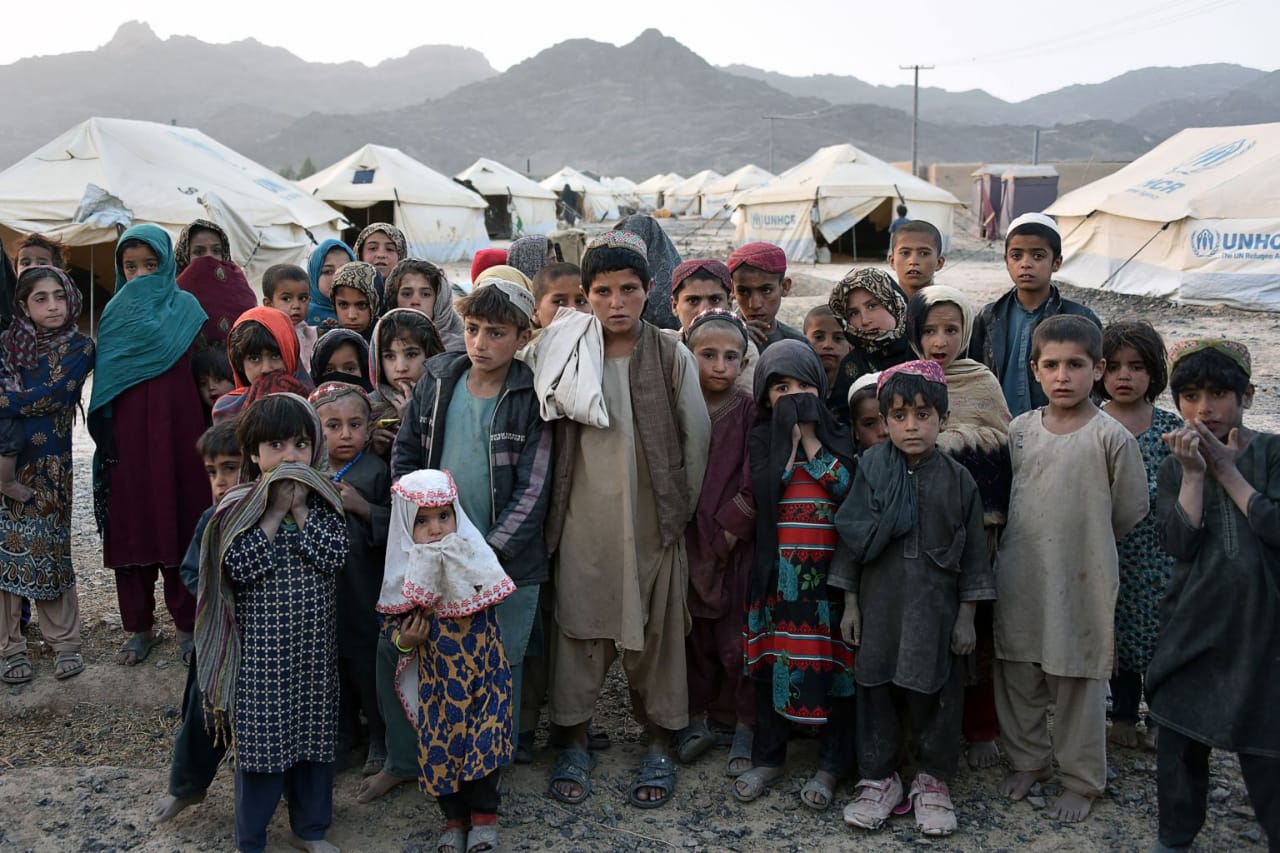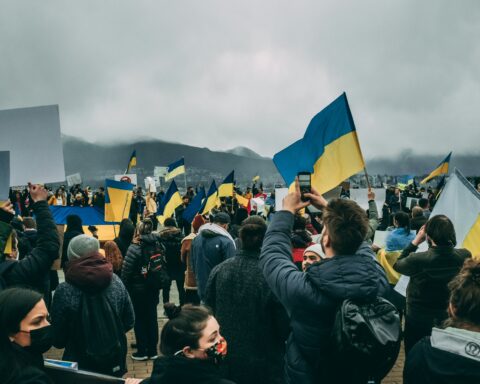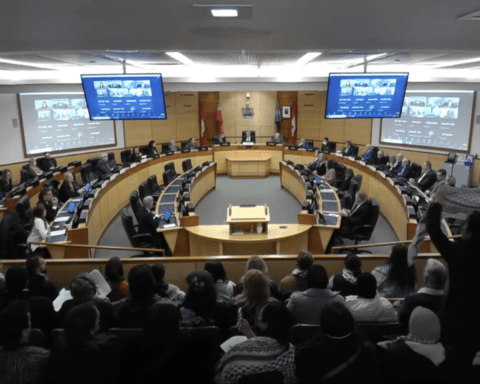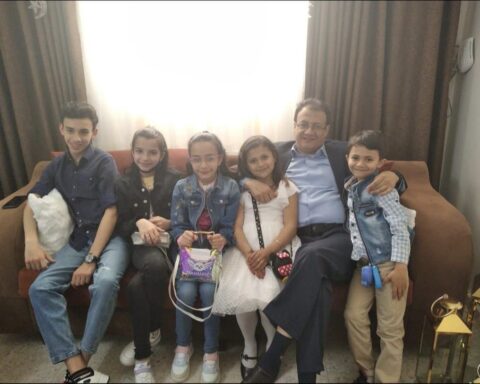A refugee is a refugee regardless of race, ethnicity, and the political dynamics that have caused them to flee their homelands.
Canadians from the Global South and refugee advocates firmly agree on this point, while struggling with conflicting emotions as they watch the exodus of over a million Ukrainians in circumstances that evoke a sense of déjà vu in them.
“Afghans can absolutely feel their (Ukrainians) pain,” one immigrant from Afghanistan who requested anonymity told New Canadian Media.
“My mother says she had to cover her newborn’s mouth right after she was born during airstrikes and bombarding (sic) by the Soviet Union in the 1980s. My family hid in a cave and finally made it to Pakistan where I was born in a refugee camp.”
However, while applauding Canada’s outpouring of humanitarian support for the 1.7 million refugees who have fled Ukraine since the Russian attack of Feb. 24, Canadians remain sharply critical of the unequal treatment given to displaced people from other war-torn lands such as Afghanistan, Syria, Palestine and Iraq.
“I am so happy the world is supporting Ukrainian refugees now,” added the same Afghan refugee after recounting their obstacle-riddled path to safety in Canada.
(But) do we have a different definition of refugee in 2022, or could it be racism that made our journey so difficult?”
Their question is prompted by the sharp contrast between their own experience and the Canadian government’s current program for Ukrainian refugees.
Differential treatment
Canada has opened its doors wide for Ukrainians, creating a Canada-Ukraine Authorization for Emergency Travel, eliminating normal visa requirements, with no limit to the number of Ukrainian nationals who can apply. Their applications will be prioritized and they may stay up to two years.
This does not, however, apply to non-citizen Afghans and other residents of Ukraine fleeing the same war, as Global News reported.
Furthermore, the Afghan refugee experience stands as a sharp rebuke to Canada’s discriminatory policies and practices when compared to its current treatment of Ukrainians.
Farzana Adell, 38, an Afghan refugee trapped in Turkey, has been trying for several months to get her application processed for resettlement in Canada, but has received no response from the Canadian bureaucracy.
A former government employee, the founder of a women’s rights group in Afghanistan and a Hazara — an ethnic minority on the Taliban’s hit list — Adell “checks every box for being on the fast track to Canada,” according to Matthew Behrens, coordinator of the Ottawa-based Rural Refugee Rights Network, whose members have been trying to help her.
“Canada as a refugee-welcoming country is a myth for these people,” Behrens said. “Ukrainian refugees are victims of war crimes, but we should apply the same principles to all victims of war crimes. This kind of discrimination is racism.”
Professor Nour El Kadri, of the Telfer School of Management at the University of Ottawa, agrees.
“This is racism to the core,” he says.
El Kadri says while he applauds Canada for always having been gracious in welcoming refugees, the challenge is that governments have a “blind spot” that allows them to discriminate “between various types of refugees.”
To illustrate his point, he referred to Prime Minister Justin Trudeau, who publicly declared that “A Canadian is a Canadian is a Canadian” in 2015 while also being at the centre of a Blackface scandal when photographs surfaced of him in a theatrical costume and black makeup that has traditionally been used to mock Black people.
“This incident displayed a blind spot in him,” El Kadri said. “And that blind spot is seen again in this discriminatory refugee policy.”
He also pointed out that while Canada promised to take in 25,000 Syrian refugees during the Syrian crisis in 2015 and 40,000 Afghans after the fall of Kabul to the Taliban, it has not set any limit for Ukrainian refugees fleeing the Russian bombardment.
“We need to sympathize with and support refugees from anywhere, with no exception,” El Kadri added.
Take politics, racism out of refugee programs
Christopher Assad, founder and former president of the Syrian Arab Association of Canada, takes a similar view.
“Canada prides itself on being hospitable to refugees, but the hospitality depends on geopolitical factors,” he said.
Assad also recounted and compared the current situation to the Lebanese civil war of the 1970s, when there was a fast-track program for Lebanese refugees.
“But now, in a similar situation, it is in Canada’s and other Western powers’ interests to oppose Russia and to extend the NATO network by including Ukraine. This makes a difference to the way refugees are treated,” he said.
“We should take politics and racism out of our refugee programs, which should be 100 per cent based on the humanitarian principle.”
In the meantime, Lloyd Axworthy, Canada’s former foreign minister and current chair of the World Migration and Refugee Council (WMRC), has called for the government to send resources to Ukraine’s bordering countries such as Poland and Moldova that are also dealing with large numbers of refugees each day.
Editor’s note: Professional and ethical journalism guidelines state that all claims must be corroborated and backed up by evidence and credible sources who are clearly identified. However, this isn’t always possible to do when security and safety issues, for instance, are at play. Please, take a look at this guide published by NCM to learn more about the ethics behind naming sources and using anonymous ones.
Ottawa-based writer/journalist, editor, blogger, communications professional seeking freelance opportunities in political and travel writing.





